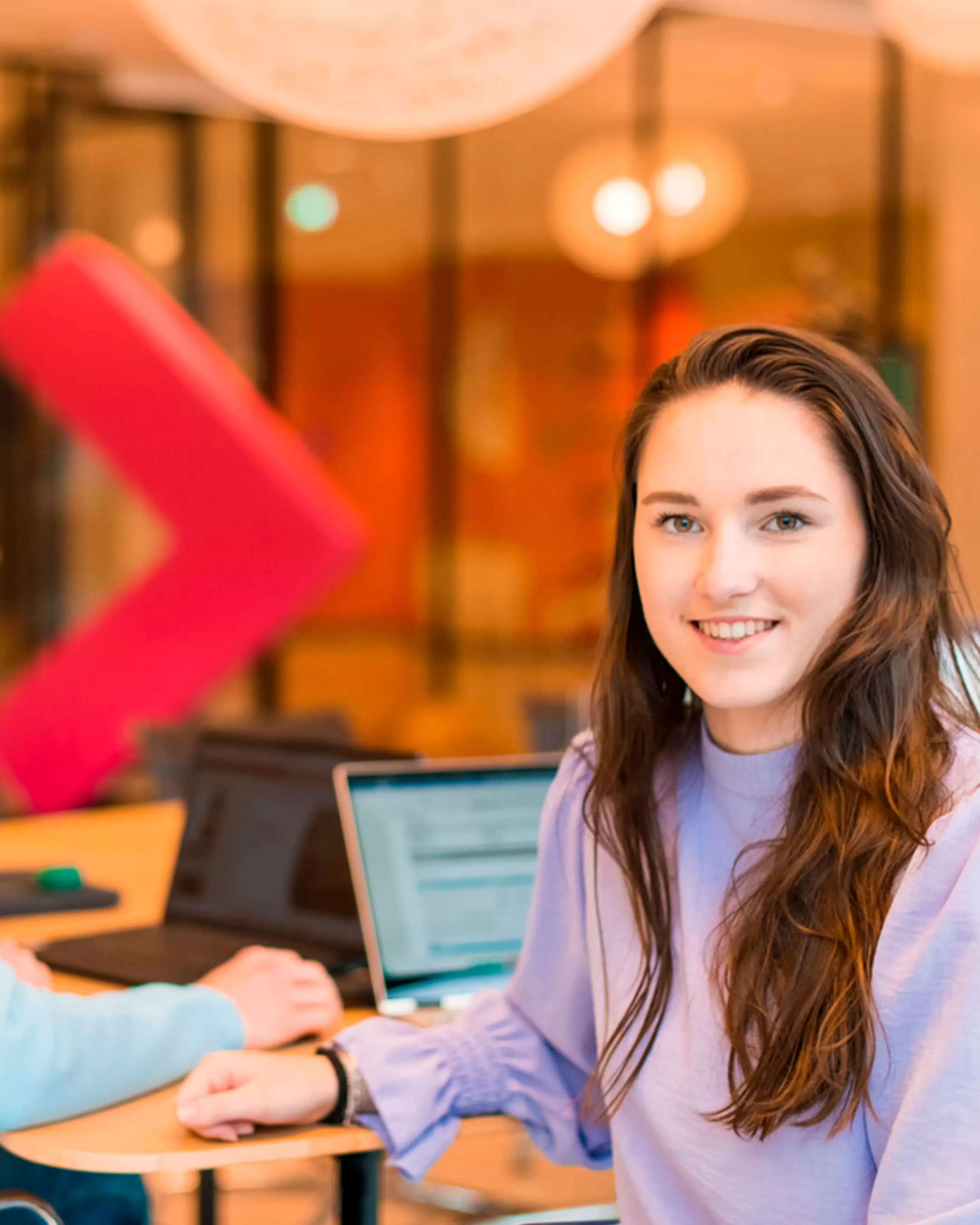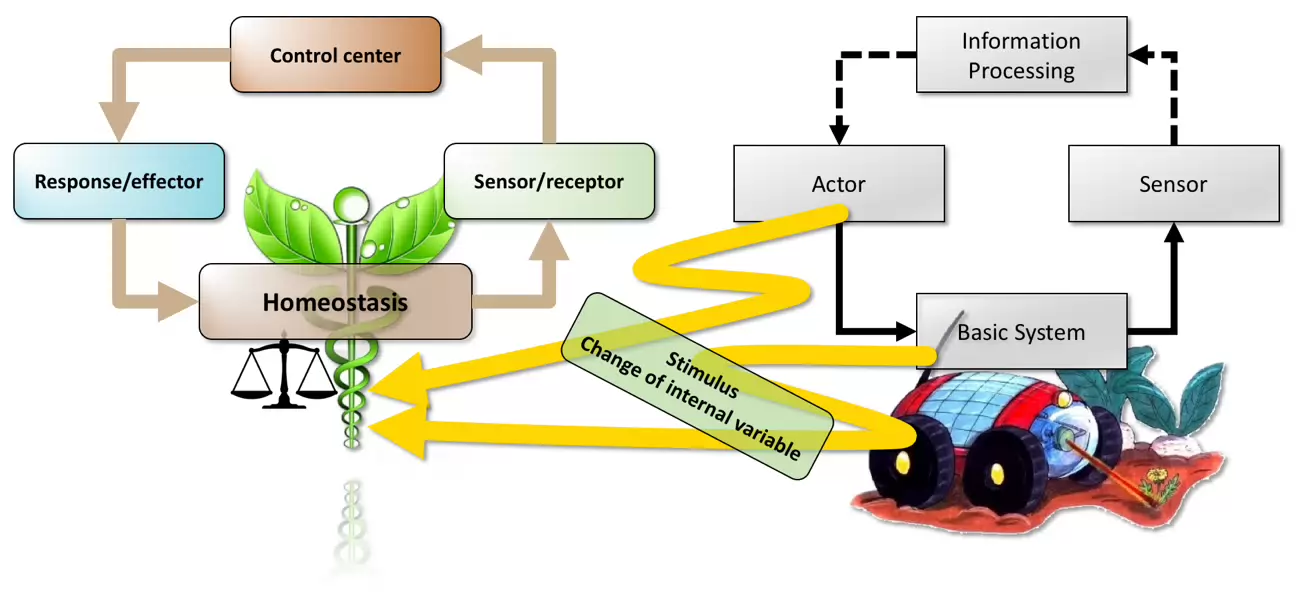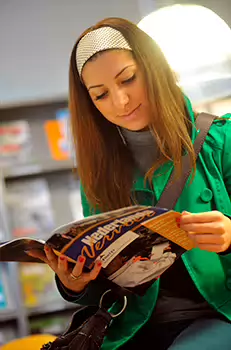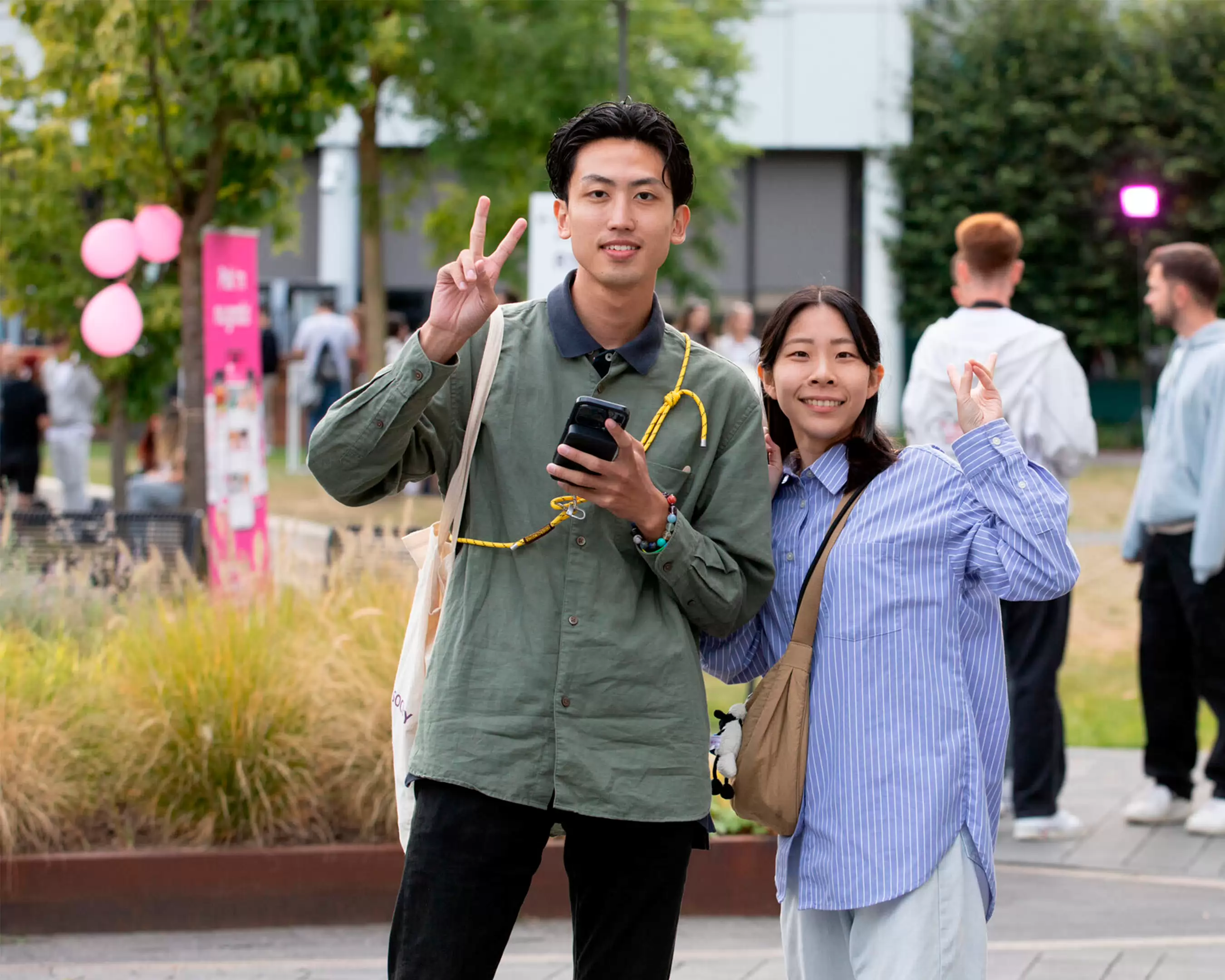

AI-systems; High Tech AI-Solutions
About the exchange programme
In this programme we welcome you, exchange student from our partner institutes. AI-systems offers you a fixed, but short, introduction programme and then switches over to electable courses, in which you develop knowledge and skills on the crossover of biology and technology in an on demand way. This crossover is a relatively new area of hybrid engineering, optimally suited for the innovative breakthroughs in bio-technical solutions, needed by today’s agricultural sector.
Why this programme?
- Focuses on innovative AI applications across diverse industries such as robotics, healthcare, logistics, and smart systems.
- Offers electable courses for tailored learning in bio-technical systems.
- Promotes demand-driven education, allowing customization to personal interests and talents.
More about AI-systems; High Tech AI-Solutions
Want to discover:
- How the working of the brain can help us in agro robotics?
- How AI influences the Vision, IoT, and Robotics disciplines for agro problems?
- How Deep Learning is changing Engineering?
- How Augmented Reality can accelerate tomato picking?
- How can biomimicry help us with better designs?
- How to engineer the complex embedded systems needed for next generation autonomous vehicles?
- How Systems engineering and Cybernetic control play a role in this?
- How Edge Computing changes the design of IoT systems?
- How robots learn behaviours instead of just being programmed?
- How virtual plant modelling can help in harvesting?
- Why the small scale of Venlo facilitates a unique eco system for this multidisciplinary minor?
Explore these questions to unlock innovative solutions and advancements in agricultural and engineering technologies, shaping the future of sustainable and efficient practices.
What do we expect from you?
Students bring curiosity and commitment to explore how artificial intelligence can be applied in real-world contexts. You are expected to analyze and interpret data, design smart solutions, and translate theoretical knowledge into practice through research as well as group and individual projects.
At the same time, you develop your own study path, guided by your passion and talents. Demand-driven education enables you to specialize in areas that inspire you most – from robotics to logistics and smart systems. We provide the opportunities, but it is up to you to shape your journey and create your value in the professional field.
Content of the programme
In this programme you will explore how AI connects technology, biology and business, and how smart systems can make a difference in real-world settings (see figure 1). The focus is on applying AI to solve practical challenges, from robotics and automation to healthcare, logistics or even agriculture, depending on your interests.
 Figure 1: Connection between the worlds
Figure 1: Connection between the worlds
Supporting courses give you the tools you need. You will work with data analytics, machine vision, robotics, and systems engineering, and also reflect on the ethical side of AI. Depending on your project, you can dive deeper into specific domains that inspire you.
The most important themes for the supporting courses are indicated below. This is not exhaustive and the themes depend on project content and personal interest.
- (Abiotic) Actuation - Optimising animal and plant health/welfare by any form of actuation
- Data analytics - Big Data, Data Conversion, Data Clustering and Classification, hyperspectral, data intensive sensors/actuators, omics
- Data synthetics - Big data, motor babbling, orchestration of multiple and possibly heterogeneous actuations (e.g. movement), data intensive actuators, omics
- Machine vision - The camera as a sensor, image processing algorithms, recognition, exposure
- Robotics - Field of robotics, types, species, kinematics, programming, tools
- Innovation - How to innovate?
- Project Management – How to manage your minor projects, how to communicate with stakeholders?
- Systems Engineering - Systems Engineering is a holistic and interdisciplinary approach/methodology to enable the realization of successful systems
Admission requirements
This programme is suitable for technical, biological and business majors. Computer programming skills are advised but not mandatory.
English level: equivalent to IELTS 6.0
How will your course programme be recognised by your home university?
Fontys will provide you with a so-called ‘Transcript of Records’, which will clarify the results that you have achieved. Depending on your results, you will receive a maximum of 30 ECTS credits. ECTS credits are recognised throughout Europe. The agreement between your home university and Fontys University of Applied Sciences will usually include a condition whereby the credits that you obtain will be recognised and transferred into the records kept by your home university.
Practical information
- Start moment(s)
- September, February
- Location
- Venlo
- ECTs
- 30
- Language
- English
- Duration
- 20 weeks
Applications should always be submitted via the International Exchange (or Erasmus) Officer at the home university. This officer will send your application request (nomination) to Fontys. Once Fontys has received the nomination, your Fontys study department will send you a link to a web application called Mobility Online. Please take a look here to see how it works.
If you want to come as a freemover, we also need your university to send us a nomination e-mail. Once we have received this we will send you our application information.
As a freemover the fees are €75 per ECTS. If you are not sure if your university is a partner of Fontys Venlo University of Applied Sciences, the international office of your home university can tell you more about this.
Deadlines
Spring semester:
Nomination deadline November 1st
Application deadline November 15th
Fall semester:
Nomination deadline May 1st
Application deadline May 15th
For more information concerning the start date, please get in touch with the contact person of the study department of the concerned exchange programme.
English language requirements
For most English taught exchange programmes a minimum level of English language proficiency of CEFR* B2 or an equivalent of IELTS 6.0 or TOEFL 80 is required. However there might be programmes where a higher level is required and submitting evidence might be necessary.

For more detailed information about practical matters, such as financial matters, residence permit, health insurance and accommodation, please click on the button below.
More information on practical mattersDoing a study abroad most certainly means a lot of excitement and perhaps also a bit of anxiety. Getting used to everything may be a challenge at times. You may have language difficulties or be unfamiliar with certain aspects of life in the Netherlands and at the university.
We receive around 100 international exchange students each semester. To give them a warm welcome into Dutch culture and at our campus, the International Office has set up a buddy programme. A buddy is a Fontys bachelor student who is familiar with the campus and who can give practical help with administrative systems, timetables etc. They know their way around the city of Venlo and can also help students to better understand Dutch traditions and habits and feel at home real soon!
What else can students expect from a buddy? A buddy will:
- meet you at the Venlo train station and accompany you to your room.
- help you get settled during the first weeks by answering practical questions related to living in Venlo and by showing you around town.
- help you with questions about campus life, teaching styles, campus set-up, how to prepare for exams, etc.
- help you with practical questions such as how to print documents, how to get connected to Wi-Fi, get acquainted with the Fontys portal, etc.
- introduce you to Dutch culture.
- be able to join you during social activities.
The programme seeks to give students the best possible start to their study abroad in Venlo and at our campus!

